Back
Vishu Bheda
•
Medial • 1y
In 2010, Big Bazaar was ruling Indian retail, unstoppable at 250 stores. Then came DMart—with just 10 stores—and changed everything. Here’s how they did it: Big Bazaar brought the supermarket culture to India and became a household name. However, its aggressive expansion and high debt led to its downfall. Leasing stores in malls and acquiring other chains increased costs, making the business unsustainable. On the other hand, DMart focused on slow, steady growth. It owned most of its stores in suburban areas, keeping costs low. DMart prioritized sustainability by reinvesting profits, avoiding debt, and building strong supplier relationships. DMart’s core strategy was offering deep discounts consistently, not as a short-term tactic. It avoided costly products like perishables and electronics, further reducing expenses. This shows that long-term sustainability and customer loyalty are more important than rapid expansion or chasing market share. Follow for more content!
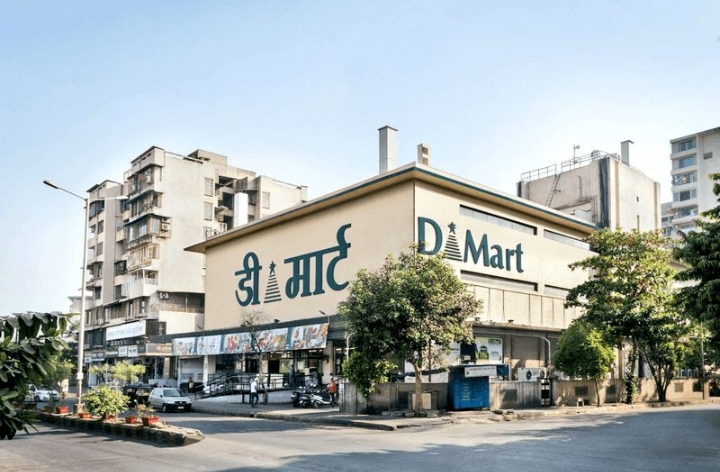
Replies (18)
More like this
Recommendations from Medial
Jaswanth Jegan
Founder-Hexpertify.c... • 1y
“Powerhouse of Indian Retail to failure” Billions to Bankruptcy #4 Big Bazaar was started in 2001 by Kishore Biyani under future retail group.It was started as a one-stop shopping destination provided consumers with convenience and value, catering
See More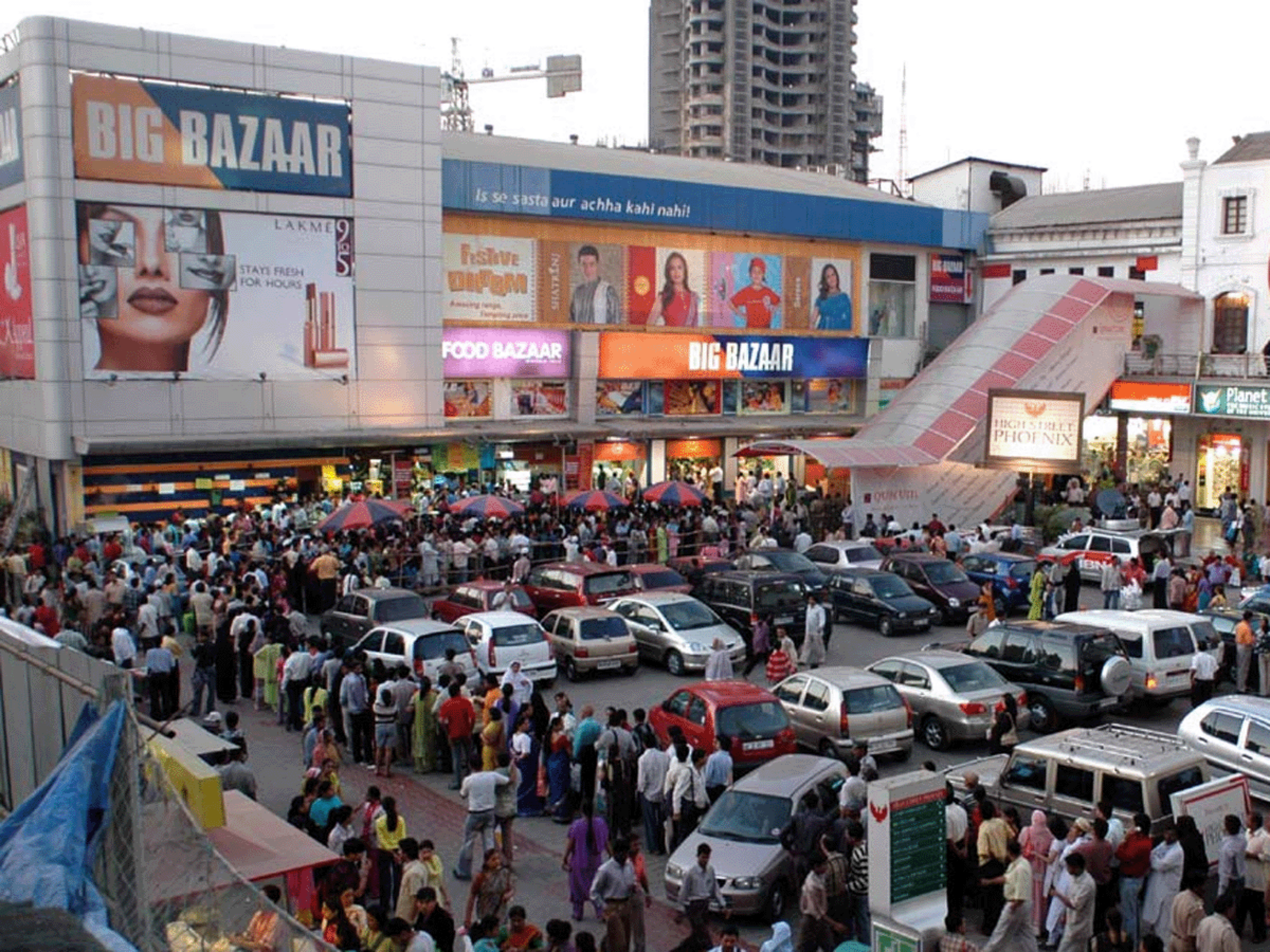
Biswajeet Sen
Founder & CEO | Gian... • 10m
Let's settle this once and for all - who's the REAL BOSS of Indian supermarkets? Rank them (1= total dominance): 1.DMart 2. Reliance Smart Bazaar 3. Vishal Mega Mart 4. More Retail Who's killing it with prices, crowds, and reach? #RetailWar #lndi
See MoreShyam Kumar
Startup as a dream • 9m
From ₹30 crore in a day to bankruptcy – the rise and fall of Big Bazaar 2001 – the year India witnessed a retail revolution. Big Bazaar’s first store opened and made ₹30 crore on the first day itself. The tagline? “Sabse Sasta, Sabse Best.” The r
See More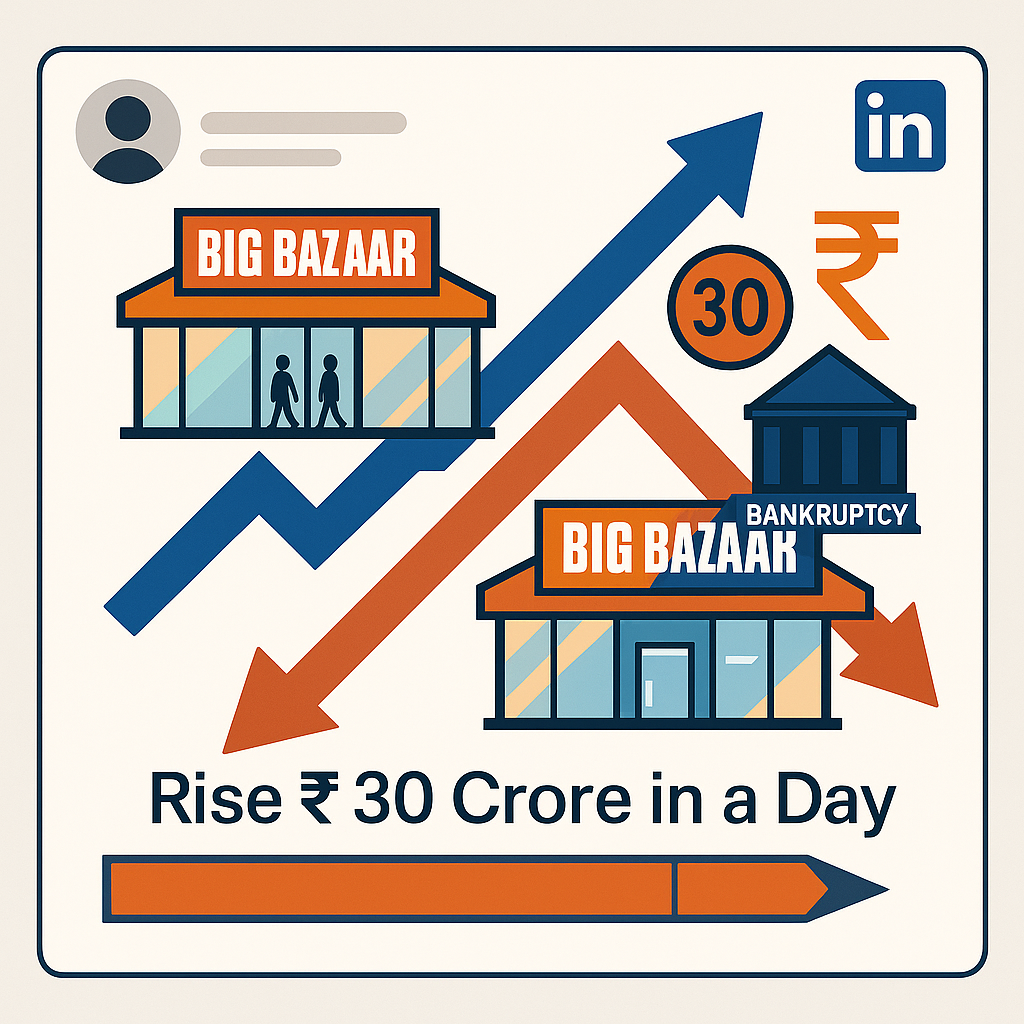
Ansh Kadam
Founder & CEO at Bui... • 9m
Here’s how Mukesh Ambani killed Big Bazaar and acquired almost for free. In 2020, Big Bazaar was on the verge of bankruptcy. Kishore Biyani, its founder, was looking for a lifeline, and Mukesh Ambani came forward with a bold ₹24,000 Cr buyout offe
See More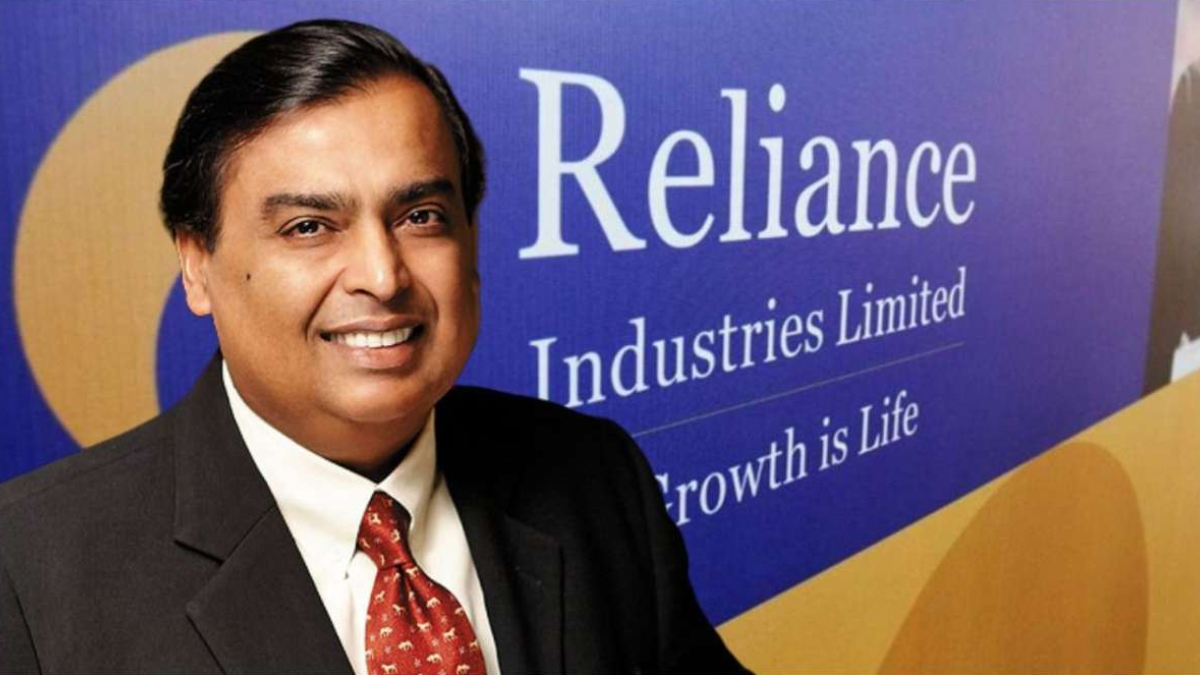
Vansh Khandelwal
Full Stack Web Devel... • 4m
Cafe Coffee Day (CCD), India's pioneering cafe chain, revolutionized coffee culture but suffered poor financial management and over-expansion, creating heavy debt and operational inconsistencies that hurt quality and loyalty. Recovery has focused on
See MoreJaswanth Jegan
Founder-Hexpertify.c... • 1y
Is Dmart a Scam? This weekend I went to Dmart it felt like the whole people from the city was inside it parking space is full,every shopping trolleys were taken,store is full cant even walk freely,bill counters were crowded.Prices of all the product
See More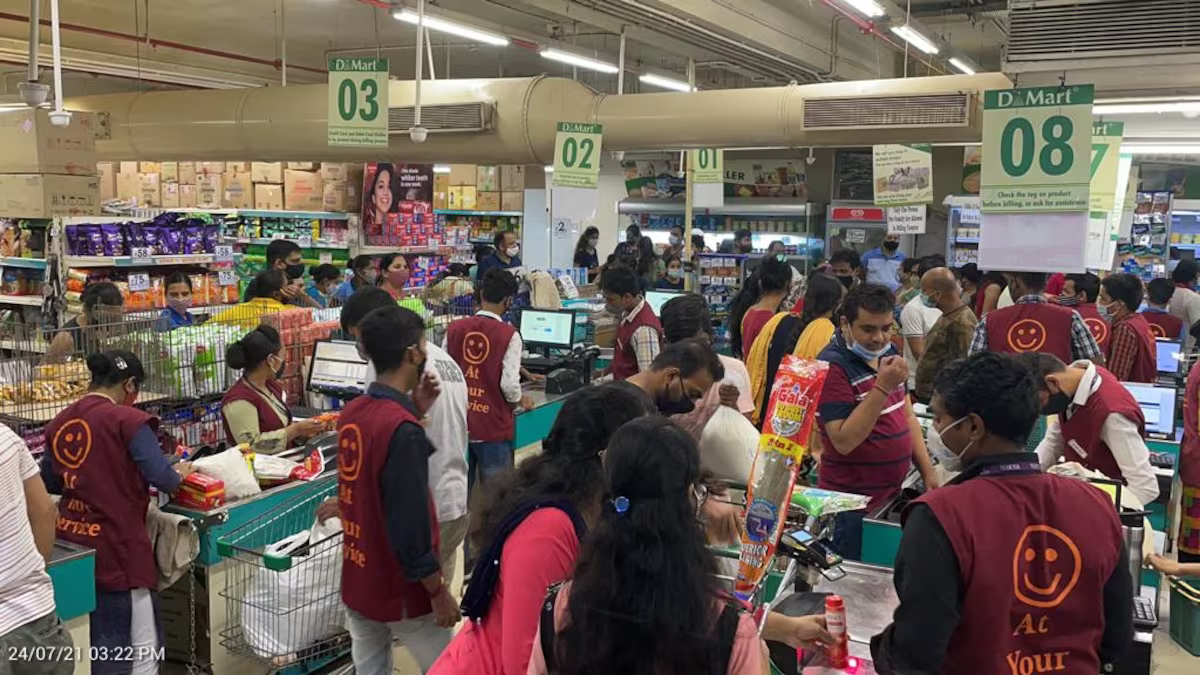
Account Deleted
Hey I am on Medial • 1y
Quick Commerce: Investment Highlights • Swiggy is planning to invest ₹1,600 crores in its subsidiary Scootsy. This funding helps Scootsy enhance operational capabilities and expand dark stores. • Similarly, Zomato plans to raise $1 billion through
See More
Download the medial app to read full posts, comements and news.

















/entrackr/media/post_attachments/wp-content/uploads/2021/08/Accel-1.jpg)


















